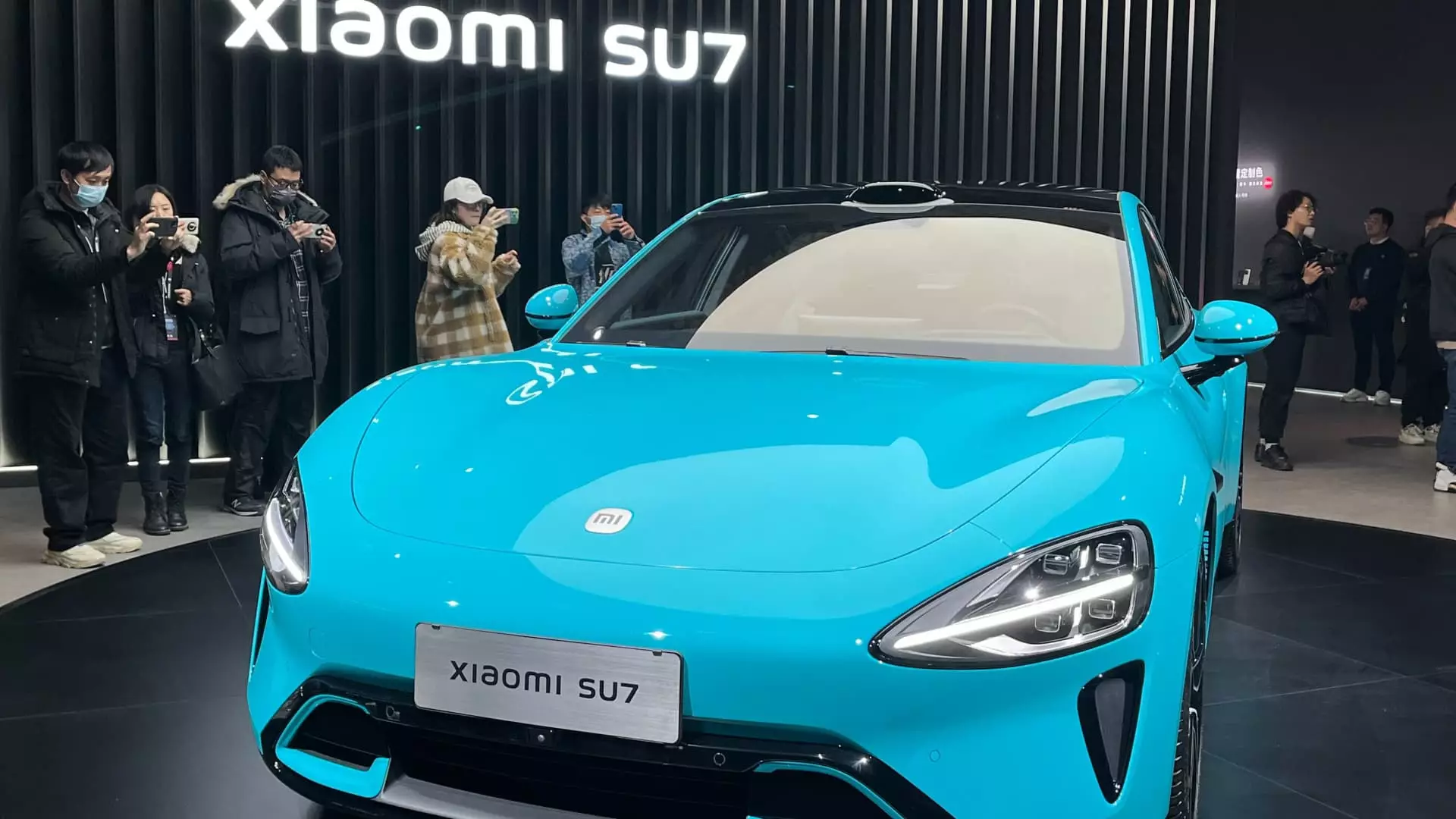Xiaomi, the Chinese smartphone company, made waves in the electric car market by announcing the launch of its first car, the SU7. This move comes as a direct challenge to Tesla’s Model 3, with Xiaomi pricing its standard version of the SU7 significantly lower than Tesla’s offering. Despite selling each car at a loss, Xiaomi CEO Lei Jun expressed confidence in the SU7’s capabilities, highlighting its competitive specifications.
The electric car market in China is fiercely competitive, with several companies vying for market share by launching new models and slashing prices. Xiaomi’s entry into this space with the SU7 has further intensified the competition. Companies like BYD, Nio, Xpeng, and Geely-owned Zeekr are already offering electric sedans at varying price points to cater to the growing demand for new energy vehicles in China.
Xiaomi’s decision to enter the electric car market aligns with its broader strategy of building an ecosystem of devices connected to its new HyperOS operating system. By launching the SU7 under the “Human x Car x Home” strategy, Xiaomi aims to create a seamless experience for consumers across different product categories. This move reflects Xiaomi’s ambition to diversify its revenue streams beyond smartphones and consumer products.
Lei Jun showcased the SU7’s technological prowess, including driver-assist features for highways and cities, seamless integration with Apple’s Car Play, and support for iPads. Xiaomi’s focus on enhancing the driving experience by offering innovative accessories such as an in-car refrigerator and a custom front-window shade sets it apart from traditional automakers. The company’s commitment to improving the SU7’s performance over time demonstrates its dedication to innovation in the electric car space.
While Xiaomi’s foray into the electric car market signals its ambition to disrupt the industry, the company faces challenges in competing with established players like Tesla and Porsche. Despite offering a more affordable alternative with the SU7, Xiaomi acknowledges that it still has a long way to go before reaching the premium level of competitors like Porsche. However, Xiaomi’s focus on developing a high-quality electric sedan that caters to the needs of tech-savvy consumers presents a significant opportunity for growth in the market.
Xiaomi’s introduction of the SU7 electric car signifies a new chapter in the company’s expansion beyond smartphones. By leveraging its technological expertise and brand reputation, Xiaomi aims to carve out a niche in the competitive electric car market in China. The success of the SU7 will ultimately depend on Xiaomi’s ability to deliver on its promises of innovation, affordability, and quality, while navigating the challenges of competing with industry giants. As Xiaomi continues to evolve its “Human x Car x Home” strategy, the future looks promising for the company as it seeks to establish itself as a key player in the electric car industry.

